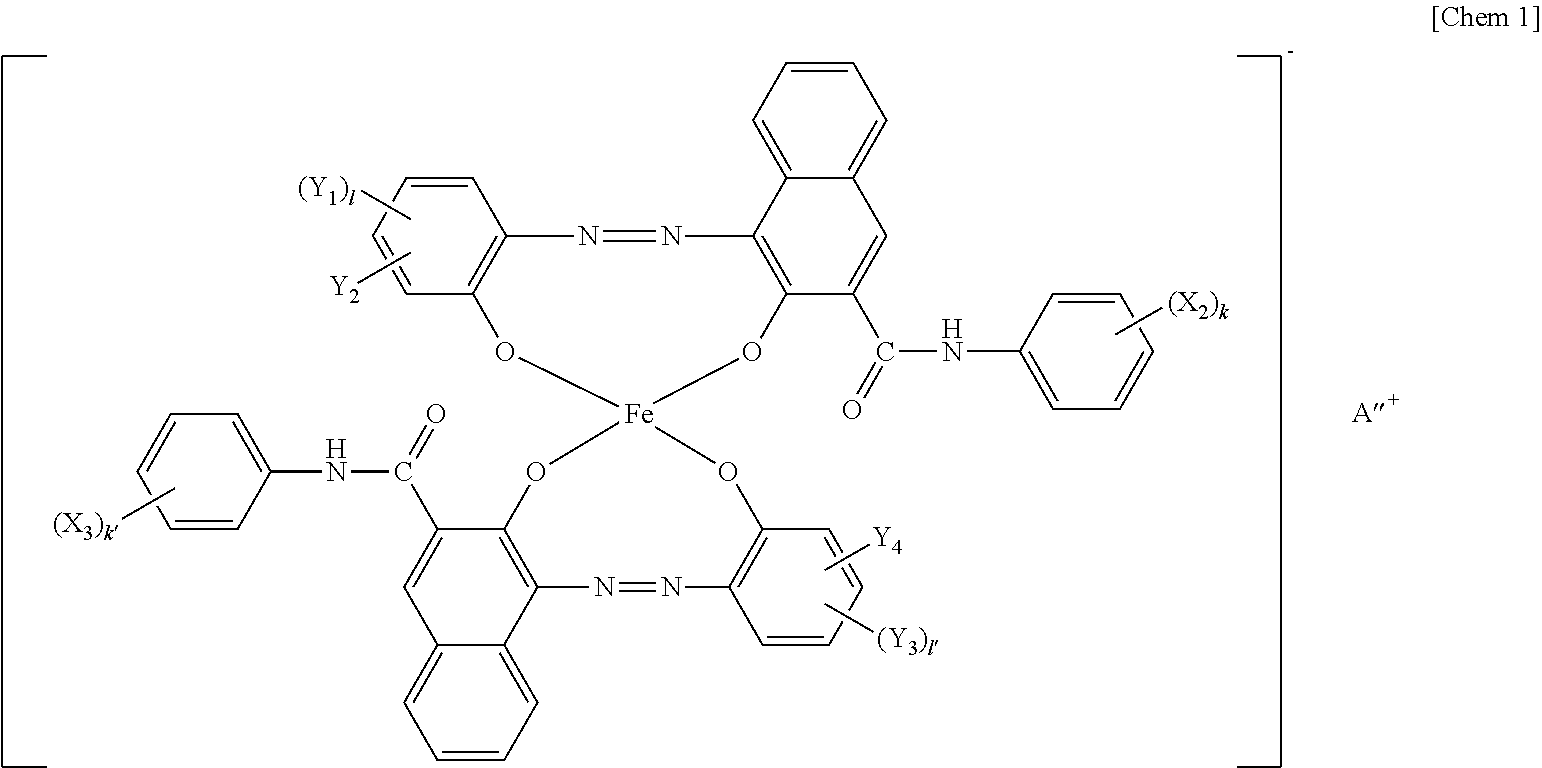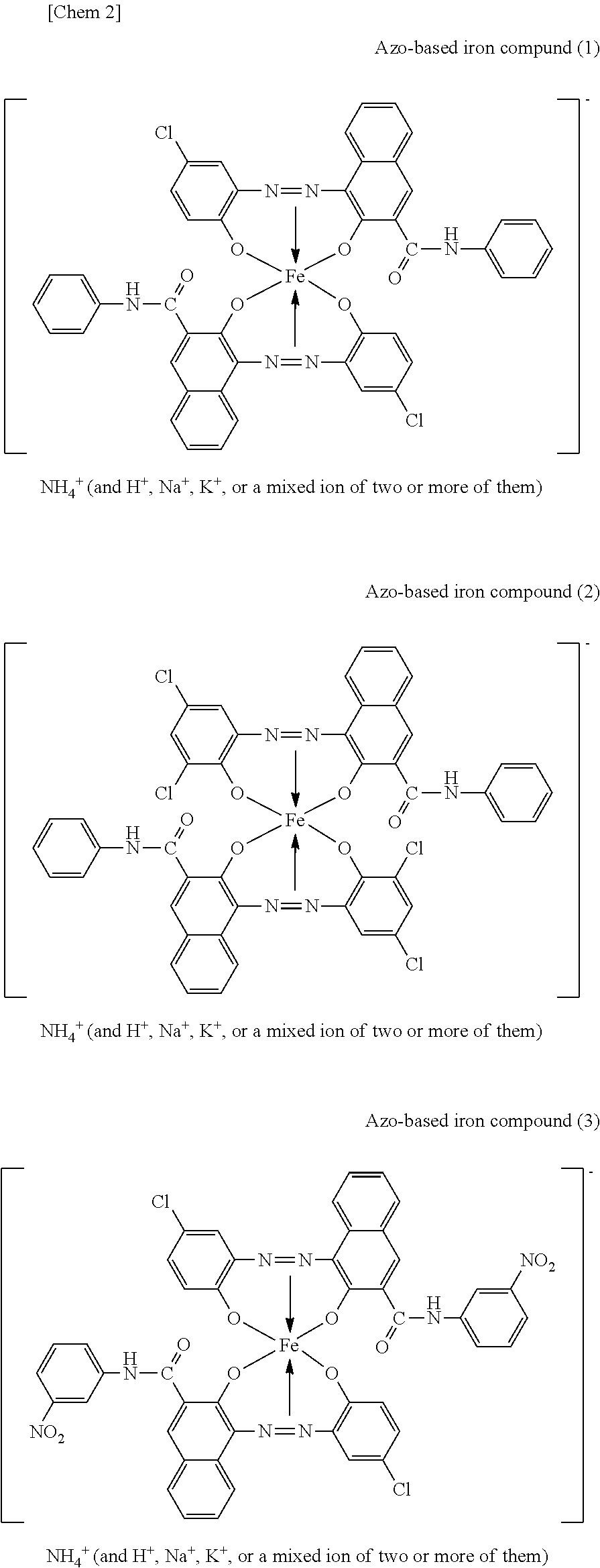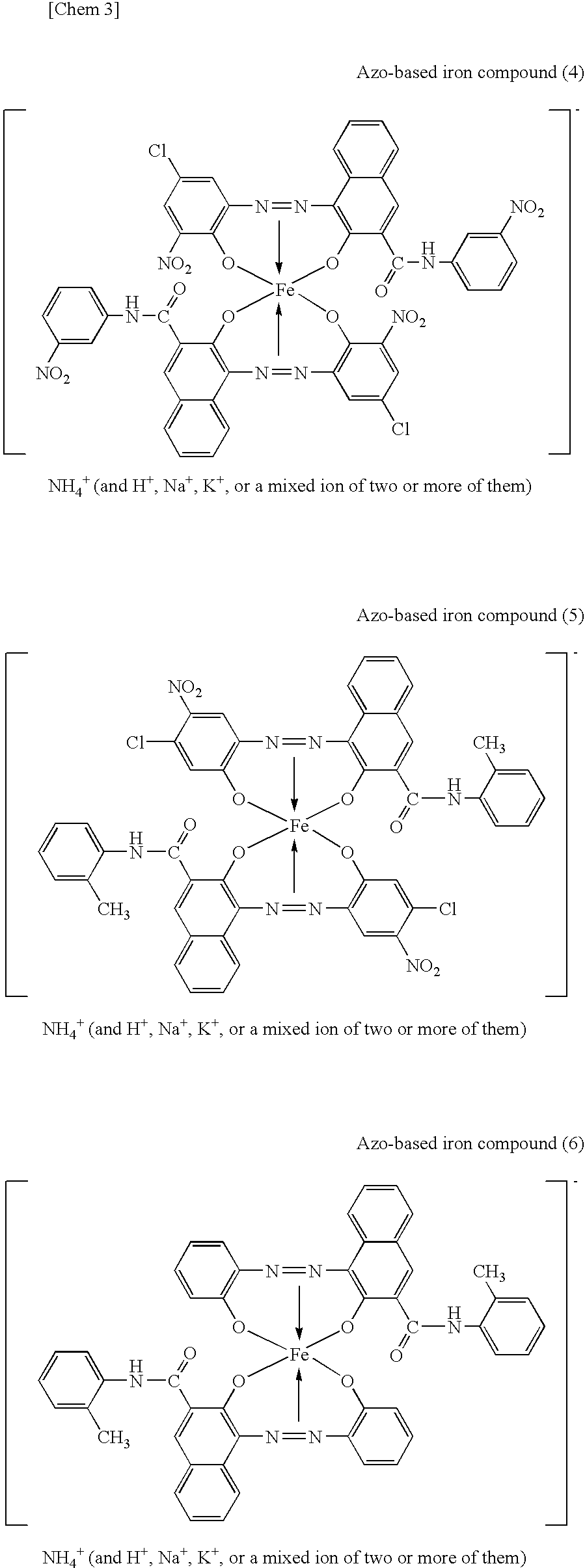Toner
a technology of toner and nozzle, applied in the field of toner, can solve the problems of high surface unevenness, high degree of surface unevenness, and previously hardly coming to the surface, and achieve the effects of excellent charge rising performance, good image, and excellent ability to prevent electrostatic offset and fixation tailing
- Summary
- Abstract
- Description
- Claims
- Application Information
AI Technical Summary
Benefits of technology
Problems solved by technology
Method used
Image
Examples
production example 1
of Polymer A Having Sulfonic Group, Sulfonate Group, or Sulfonic Acid Ester Group
[0276]
Methanol300 gToluene100 gStyrene470 g2-ethylhexyl acrylate 78 g2-acrylamide-2-methylpropanesulfonic acid 42 gLauroyl peroxide 6 g
[0277]The above raw materials were loaded into a flask. The flask was mounted with a stirring apparatus, a temperature-measuring apparatus, and a nitrogen-introducing apparatus, and the mixture was subjected to solution polymerization under a nitrogen atmosphere at 70° C. The foregoing state was retained for 10 hours before the polymerization reaction was completed. The resultant polymer was dried under reduced pressure and coarsely pulverized. As a result, a polymer A-1 having a weight-average molecular weight (Mw) of 31,500, a glass transition point (Tg) of 71.8° C., an acid value of 15 mgKOH / g, and a number-average particle diameter of 410 μm was obtained.
Toner Production Example 1
[0278]
Polyester resin 1100parts by massWax4.0parts by mass(Low-molecular-weight polyethy...
example 1
[0284]Toner 1 was subjected to the following evaluations. Table 4 shows the results.
[0285][Evaluation 1: Electrostatic Offset]
[0286]Evaluation for electrostatic offset was performed under a low-temperature, low-humidity environment (15° C., 10% RH) where toner was apt to be charged excessively and its fixing performance was apt to deteriorate because the electrostatic offset was exacerbated under the low-temperature, low-humidity environment.
[0287]An evaluation machine obtained by the following reconstruction was used: the fixation temperature of the fixing apparatus of a laser beam printer “Laser Jet 3005” manufactured by Hewlett-Packard Company was made arbitrarily settable, and its process speed was set at 350 mm / sec.
[0288]In addition, the process cartridge of the printer was reconstructed so as to have a volume twice as large as that before the reconstruction, and the reconstructed process cartridge was loaded with 1,000 g of Toner 1. The reconstructed cartridge was set in the e...
examples 2 to 14
[0308]The same evaluations as those of Example 1 were performed by using any one of Toners 2 to 14 instead of Toner 1. Table 4 shows the results of the evaluations.
PUM
| Property | Measurement | Unit |
|---|---|---|
| frequency | aaaaa | aaaaa |
| temperature | aaaaa | aaaaa |
| dielectric constant | aaaaa | aaaaa |
Abstract
Description
Claims
Application Information
 Login to View More
Login to View More - R&D
- Intellectual Property
- Life Sciences
- Materials
- Tech Scout
- Unparalleled Data Quality
- Higher Quality Content
- 60% Fewer Hallucinations
Browse by: Latest US Patents, China's latest patents, Technical Efficacy Thesaurus, Application Domain, Technology Topic, Popular Technical Reports.
© 2025 PatSnap. All rights reserved.Legal|Privacy policy|Modern Slavery Act Transparency Statement|Sitemap|About US| Contact US: help@patsnap.com



